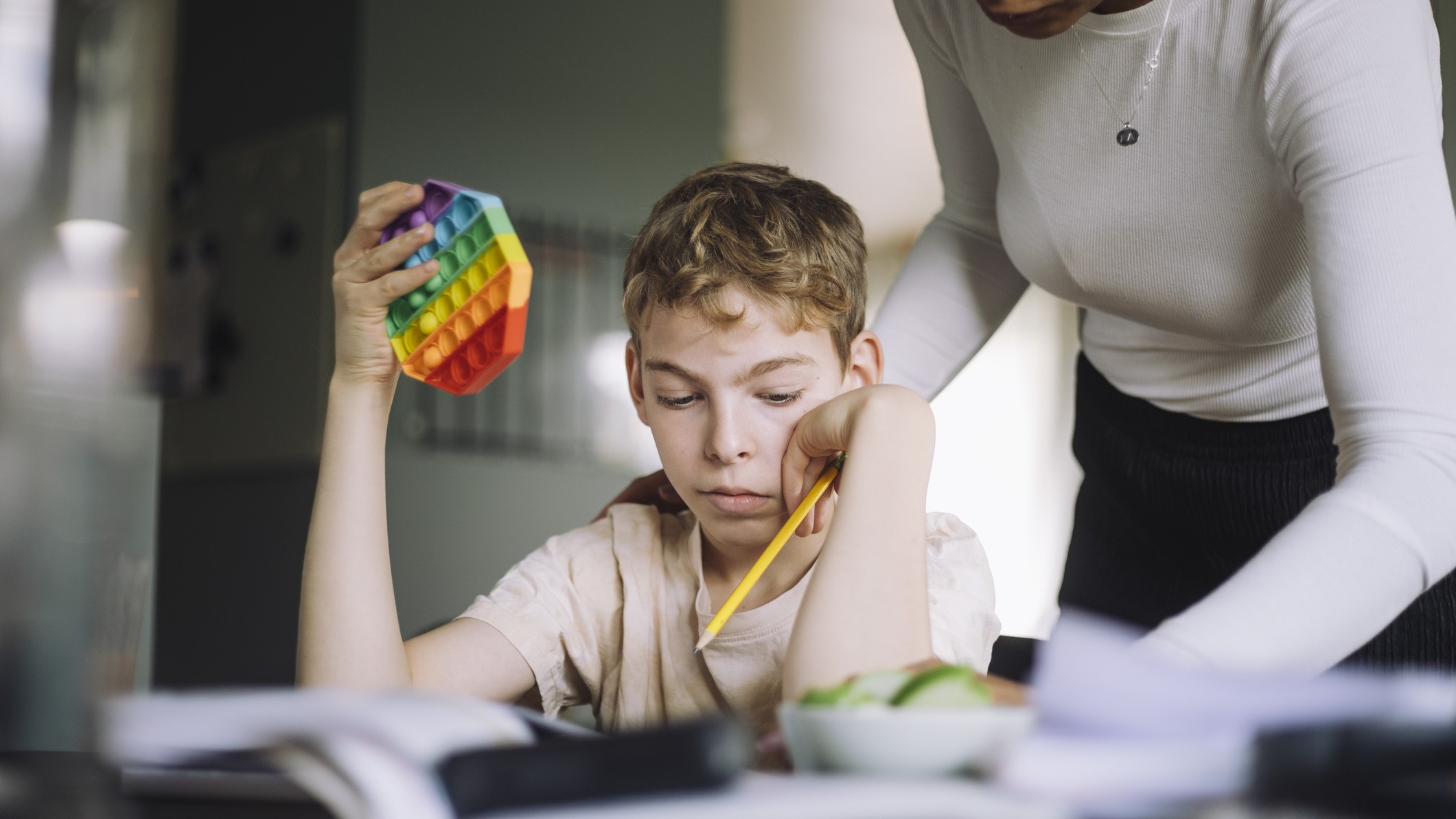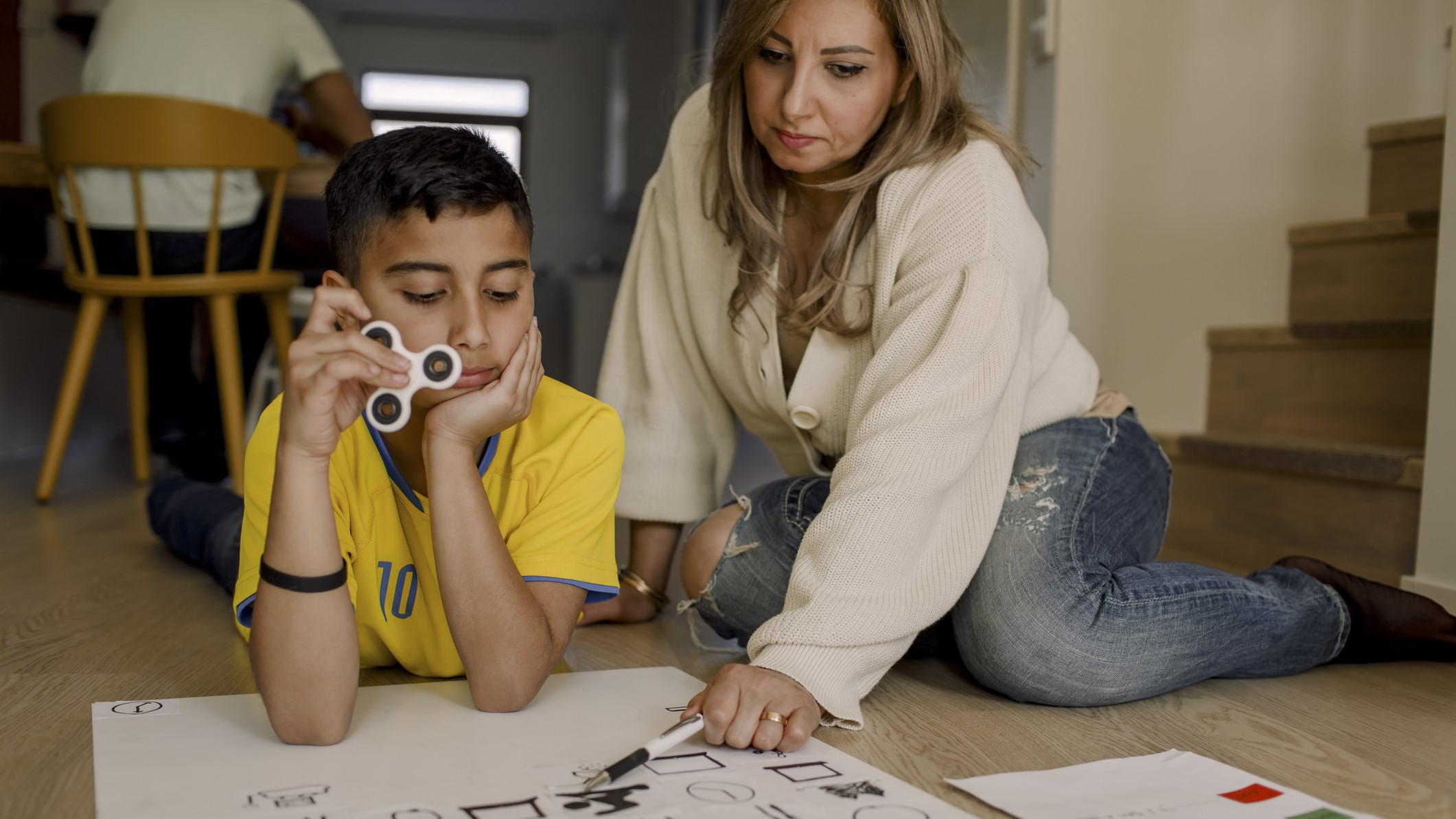Why understanding the three different types of ADHD can help you see your child better, by an educational psychologist
The types are Innattentive, Hyperactive-compulsive and Combined - here's what they mean for you and your child


As parents, we all want to understand our children better and provide them with the support they need to thrive. When it comes to Attention Deficit Hyperactivity Disorder (ADHD), this understanding becomes even more crucial.
ADHD has nothing to do with bad parenting, watching too much TV, or eating too many sweets or sugar.; it's a neurodevelopmental difference that affects how our children's brains work and interact with the world around them. I wrote an article recently on how early you can spot the signs of ADHD, so you can best support your child.
Many of us have witnessed our kids struggling to focus, acting impulsively, or seeming to be constantly on the move. These behaviours, which can impact their learning and social experiences, are often hallmarks of ADHD. It's important to remember that these challenges aren't a reflection of our parenting skills or our children's character – they're simply part of how their unique minds operate.
Recent research has shed new light on ADHD, revealing that there are actually only three distinct types of this condition. By learning more about these types, it's possible to get a much better understanding of our children's experiences and needs. This means we can provide better support, be effective advocates for our kids, and create a home environment where they can thrive.
What are the three main types of ADHD?
1. Inattentive ADHD
Children and young people with this type of ADHD struggle to listen and focus on the details when engaging in tasks and often make hasty mistakes. They will also likely need help to sustain their attention to learning, completing daily living tasks, and being organised.

Children and young people with inattentive behaviours also get bored quickly and tend to be over- or under-stimulated. They are also likely to process information more slowly and less accurately in comparison to age-related expectations.
2. Hyperactive-Impulsive ADHD
Children and young people with hyperactivity and impulsivity tend to call out and interrupt others, fidget, and feel restless. They may also have difficulty sitting still.
GoodtoKnow Newsletter
Parenting advice, hot topics, best buys and family finance tips delivered straight to your inbox.

They may also struggle with waiting their turn, blurting out answers and inappropriate comments, and struggling to self-soothe and self-regulate when they have heightened emotions.
3. Combined ADHD
This is often the most common type, where individuals experience difficulties focusing on tasks, as well as impulsivity and hyperactivity.
How has ADHD evolved?
A recent study by Doernberg and Hollander, 2016) reported that historically, ADHD was classified as a mental health condition; however, with the publication of the Diagnostic and Statistical Manual (DSM) -5 (a diagnostic tool), ADHD became included in the category of neurodevelopmental condition, reflecting that it is a lifespan condition and that a range of factors may influence a child's development.
It is important to note that ADHD affects people in different ways, and symptoms can change over time and influenced by other factors such as adverse childhood experiences (e.g., trauma, neglect and abuse).
What impact does ADHD have on a child?
I'll be honest, in mainstream education and the medical and parenting sphere there is a general lack of understanding regarding the depth and breadth of the impact ADHD has on children and young people. This lack of understanding I believe, can negatively influence parenting choices and how they are treated in some educational settings. But, once we know better, we do better - right?
All individuals can be inattentive, impulsive, or hyperactive at times; however, these characteristics are more substantial for those who are diagnosed with ADHD. It's important not to think of these three main characteristics as challenges as they also come with advantages. For some, having a diagnosis of ADHD means that they are determined, empathetic, quick and creative thinkers, good problem-solvers, understanding of others, artistic, athletic, and hard-working. Not an individual with a diagnosis of ADHD will have the same characteristics (inattentiveness, impulsiveness or hyperactivity). Some will have only two key characteristics, and others will have all three.

In my experience, children and young people with ADHD may have difficulty following and maintaining a conversation with others as they may become easily distracted. They may also experience an inability to focus even if there are no distractions. Some individuals with ADHD may become hyperfocus on their topic of interest and forget to eat, sleep, and even go to the bathroom. Some of the children and young people that I have worked with have poor impulse control, restlessness, sleep problems and trouble recalling information. I have also worked with children who struggle to follow instructions due to their inattentive tendencies, and some are likely to make irrational and impulsive decisions, which makes them socially vulnerable.
How can parents support kids with ADHD?
Parents can offer support to children and young people using a calm and nurturing approach to meet their needs so that they can thrive at home and school. May et al. (2021) found that children with ADHD were more likely to have below-expected attainment in literacy outcomes, poorer attendance to school, dysregulated behaviours and less positive attitude about their schooling.

A study into an overview of ADHD found that the features of ADHD that have been found to have the most significant effect on academic performance are difficulties with concentration, inattention, hyperactivity, challenges with planning, and reduced organisational skills. Early identification and intervention help these children understand their needs and have the proper support to cope with the demands of schooling and family life.
Suppose parents have concerns that their children may have ADHD. In that case, they must speak with their school's Special Educational Needs Coordinator to explore the support that can be given at school and the pathway for getting an official assessment.
For more articles from Dr Patricia Britto, take a look at her author page. Dr Britto's most recent 7 ways to make sure your child is school ready, is so helpful on what's really important for your little ones to know about and her article on body autonomy - the 5 things kids never have to do is so insightful - with useful tips.

Dr Britto's qualifications include a Doctorate in Professional Educational, Child and Adolescent Psychology, an MSc in Mental Health in Learning Disabilities and a BSc in Psychology.